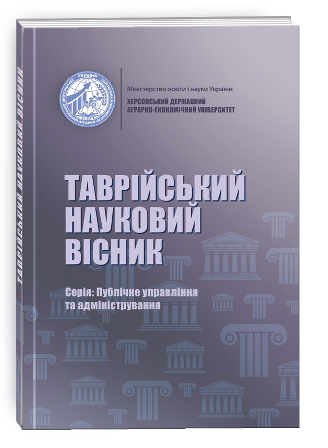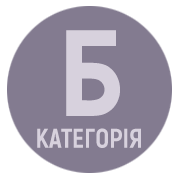DISCURSIVE PRACTICES IN THE FORMATION OF A STATE’S IMAGE IN CONDITIONS OF POLITICAL TURBULENCE AND THE CHALLENGES OF GLOBALIZATION
DOI:
https://doi.org/10.32782/tnv-pub.2025.2.3Keywords:
State image, political turbulence, globalization, strategic communication, legitimacy, symbolic powerAbstract
This scholarly investigation undertakes a gnoseological conceptualization of discursive practices as constituents of strategic communication aimed at institutionalizing desirable representations of the state within the cognitive frameworks of target audiences, under conditions of political turbulence and systemic shifts in the globalized agenda. Discourse is treated not merely as a collection of textual artifacts but as a complex form of socio-cultural action that implicitly configures matrices of identity and legitimacy in an environment of informational multivalence. The specificity of state image construction, as a phenomenon of political representation, is interpreted through the lens of the poststructuralist paradigm, which underscores the instability of signifying structures and the fragmentariness of meanings circulating within the global media sphere. Political turbulence, manifested in the form of an epistemological crisis of authority, necessitates a revision of established narrative strategies through which the state articulates its symbolic presence on the world map. A spectrum of strategic dispositifs employed in the articulation of the state as a subject of geopolitical semiosis is delineated, with emphasis on latent, cognitively elusive semiotic configurations capable of inducing affectively charged projections of political subjectivity. Particular attention is paid to tactical models of legitimizing discourse that operate within a tense field of interdiscursive rivalry, where transnational narratives function as para-hegemonic vectors of symbolic dominance, often concealed behind facades of universalized rhetorics. The analysis of discursive practices is conducted through a synthesis of methodological frameworks – critical discourse analysis, cultural hermeneutics, and the theory of social construction of reality – allowing for the deconstruction of representational schemata embedded within the official public language. Thus, the discursive approach elaborated in this article facilitates the detection of latent power configurations articulated within the public sphere and opens perspectives for further inquiry into political identity in an age of post-globalist reflexivity. The concluding reflections outline strategic modalities of discursive engineering capable of representing the state not only as a political actor but also as a bearer of a civilizational worldview.
References
Khadzhyradieva S., Slukhai S., Rachynskyi A. Public administration in Ukraine Adjusting to European standards. NISPAcee Journal of Public Administration and Policy. 2020. № 13(1). P. 81–108.
Donnan H., Wilson T. Borders Frontiers of identity nation and state. Routledge. 2021. 204 p.
Likarchuk N., Andrieieva O., Likarchuk D., Bernatskyi A. Impression marketing as a tool for building emotional connections in the public administration sphere. Studies in Media and Communication. 2022. № 10(1). P. 9–16.
Latynin M. Public administration in the economic sphere of Ukraine Strategic approach. Studies of Applied Economics. 2021. № 39(5). URL: https://ojs.ual.es/ojs/index.php/eea/article/view/4967
Swinkels M. How ideas matter in public policy A review of concepts mechanisms and methods. International Review of Public Policy. 2020. № 2(2.3). P. 281–316.
Карасаєв С. Ю., Лікарчук Н. В. Міжнародні аспекти використання інформаційних технологій у державному управлінні. Міжнародні відносини Теоретико-практичні аспекти. 2023. № 12. С. 151–163.
Simons G. Swedish government and country image during the international media coverage of the coronavirus pandemic strategy From bold to pariah. Journalism and Media. 2020. № 1(1). P. 41–58.
Vasylieva O. Ukrainian civil service Implementation of the public administration reform strategy in Ukraine. Journal of Advanced Research in Law and Economics. 2020. № 11(4) (50). P. 1439–1445.
Likarchuk N., Velychko Z., Andrieieva O., Lenda R., Vusyk H. Manipulation as an element of the political process in social networks. Cuestiones Políticas. 2023. № 41(76). P. 769–779.
Kovaliv M. Strategic planning as a factor of public administration in Ukraine. Path of Science. 2022. № 8(4). P. 1001–1009.
Likarchuk D., Krasnozhon N., Kuchyk O., Kundeus O., Andrieieva O. Theoretical and practical views of political integration in Central and Eastern Europe. Cuestiones Políticas. 2022. № 40(72). P. 912–926.







